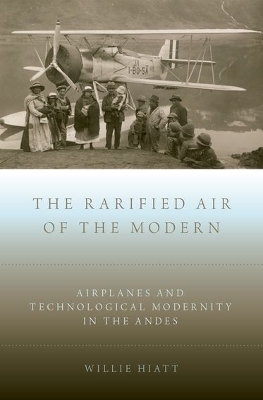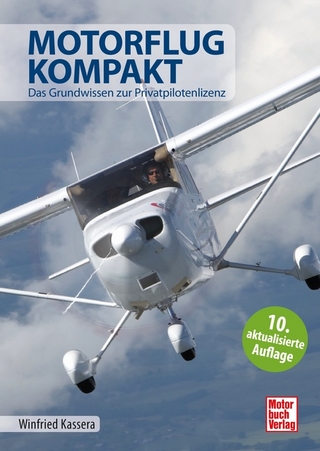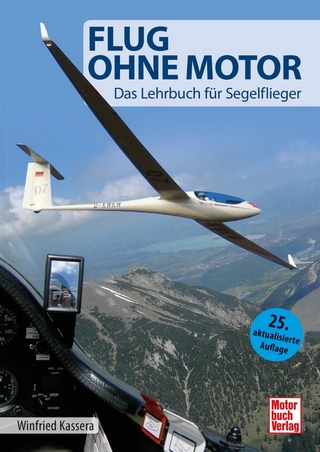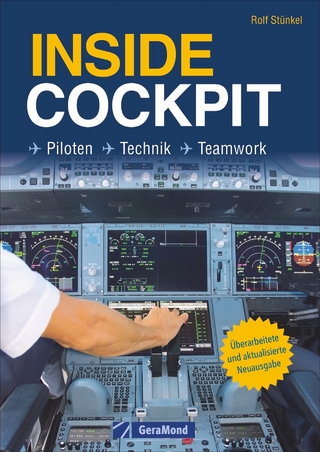
The Rarified Air of the Modern
Airplanes and Technological Modernity in the Andes
Seiten
2016
Oxford University Press Inc (Verlag)
978-0-19-024890-1 (ISBN)
Oxford University Press Inc (Verlag)
978-0-19-024890-1 (ISBN)
This book examines technology, modern identity, and history-making in Peru through the country's relationship with aviation.
The Rarefied Air of the Modern examines technology, modern identity, and history-making in Peru by telling the story of the surprising success of Peruvian pilots in European aviation competitions in 1910, and how their achievements generated great optimism that this new technology could lift the country out of its self-perceived backwardness. Though poor infrastructure, economic woes, a dearth of technical expertise, and a ghastly number of pilot deaths slowed the project after the first flights over Lima in 1911, the image of intrepid Peruvian pilots inspired a new sense of national possibility. Airplanes seemed to embody not just technological progress but enlightened rationality, capitalist enterprise, and nation-state aggrandizement. By 1928, three commercial lines were transporting passengers, mail, and merchandise from Lima to other parts of the country and South America.
This exploration of the fitful development of Peruvian aviation illuminates how a Eurocentric modernizing vision has served as a powerful organizing force in regions with ambivalent relationships to the West. More broadly, it underscores the important role that technology plays in larger, complex historical processes. Even as politicians, businessmen, military officials, journalists, and ruling oligarchs felt a special kinship with Peru's aviation project, diverse socioeconomic groups engaged aviation to challenge power asymmetries and historical silences rooted in Peru's postcolonial past. Most observers at the time considered airplanes a "universal" technology that performed the same function in Europe, the United States, and Peru. In reality, how Peruvians mobilized and understood airplanes reflected culturally specific values and historical concerns.
The Rarefied Air of the Modern examines technology, modern identity, and history-making in Peru by telling the story of the surprising success of Peruvian pilots in European aviation competitions in 1910, and how their achievements generated great optimism that this new technology could lift the country out of its self-perceived backwardness. Though poor infrastructure, economic woes, a dearth of technical expertise, and a ghastly number of pilot deaths slowed the project after the first flights over Lima in 1911, the image of intrepid Peruvian pilots inspired a new sense of national possibility. Airplanes seemed to embody not just technological progress but enlightened rationality, capitalist enterprise, and nation-state aggrandizement. By 1928, three commercial lines were transporting passengers, mail, and merchandise from Lima to other parts of the country and South America.
This exploration of the fitful development of Peruvian aviation illuminates how a Eurocentric modernizing vision has served as a powerful organizing force in regions with ambivalent relationships to the West. More broadly, it underscores the important role that technology plays in larger, complex historical processes. Even as politicians, businessmen, military officials, journalists, and ruling oligarchs felt a special kinship with Peru's aviation project, diverse socioeconomic groups engaged aviation to challenge power asymmetries and historical silences rooted in Peru's postcolonial past. Most observers at the time considered airplanes a "universal" technology that performed the same function in Europe, the United States, and Peru. In reality, how Peruvians mobilized and understood airplanes reflected culturally specific values and historical concerns.
Willie Hiatt is an Associate Professor of Latin American History at Long Island University, Post Campus.
Acknowledgments
Introduction: Airplanes and Historical Horizons on the Periphery
Chapter 1: Modernity's Surprise Landing in the Andes, 1910-11
Chapter 2: Peruvian Air Farce, 1919-30
Chapter 3: Flying "Cholo"
Chapter 4: High Technology in the Jungle
Chapter 5: The Window Seat of Modernity
Chapter 6: When Technology Bombs
Epilogue: Andeans and Airplanes after 1950
Notes
Bibliography
Index
| Erscheinungsdatum | 11.10.2016 |
|---|---|
| Zusatzinfo | 18 illus. |
| Verlagsort | New York |
| Sprache | englisch |
| Maße | 236 x 155 mm |
| Gewicht | 408 g |
| Themenwelt | Natur / Technik ► Fahrzeuge / Flugzeuge / Schiffe ► Luftfahrt / Raumfahrt |
| Geschichte ► Allgemeine Geschichte ► Neuzeit (bis 1918) | |
| Geisteswissenschaften ► Geschichte ► Regional- / Ländergeschichte | |
| Geschichte ► Teilgebiete der Geschichte ► Technikgeschichte | |
| Technik ► Fahrzeugbau / Schiffbau | |
| Technik ► Luft- / Raumfahrttechnik | |
| ISBN-10 | 0-19-024890-4 / 0190248904 |
| ISBN-13 | 978-0-19-024890-1 / 9780190248901 |
| Zustand | Neuware |
| Haben Sie eine Frage zum Produkt? |
Mehr entdecken
aus dem Bereich
aus dem Bereich
das Grundwissen zur Privatpilotenlizenz
Buch | Hardcover (2024)
Motorbuch Verlag
39,90 €


